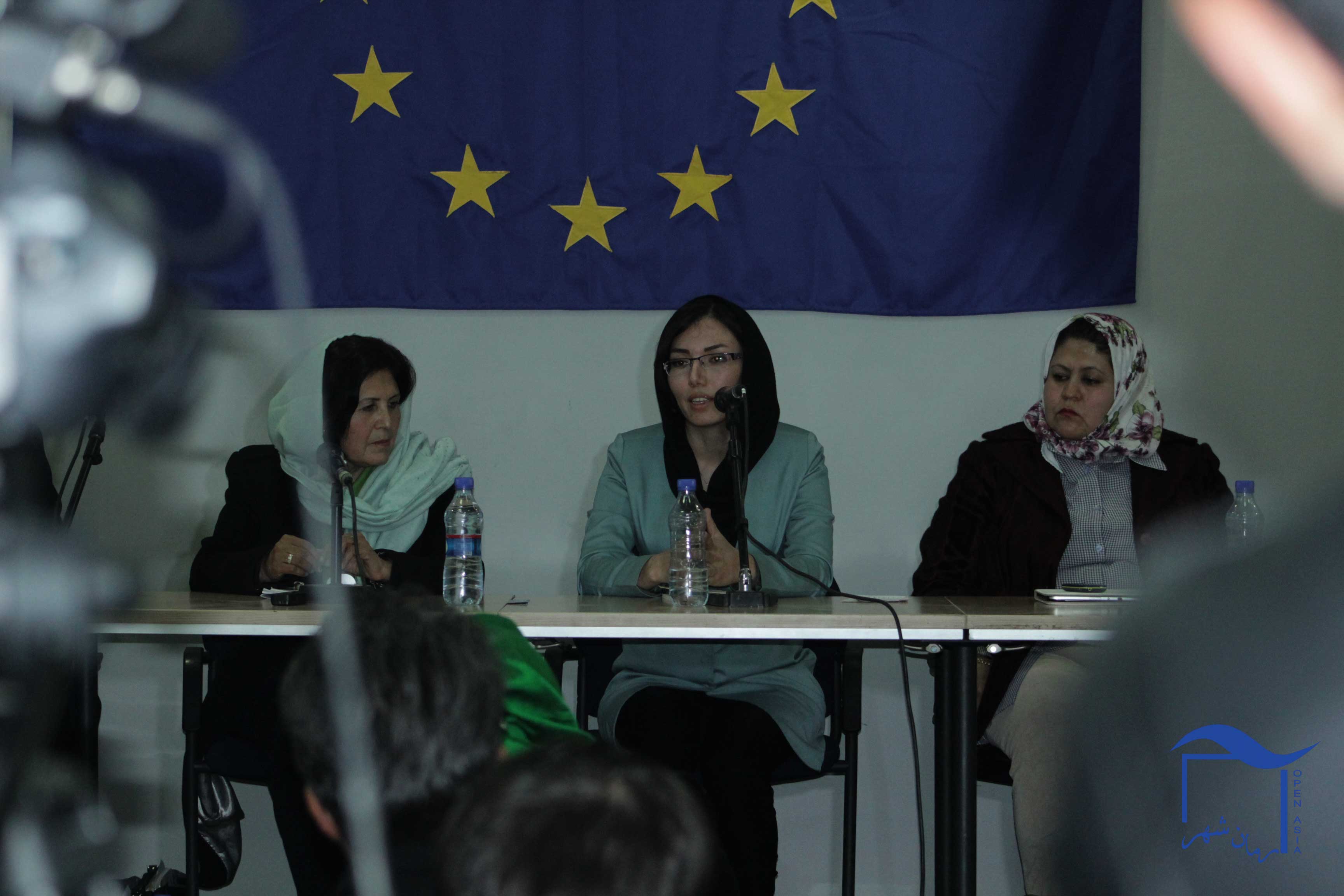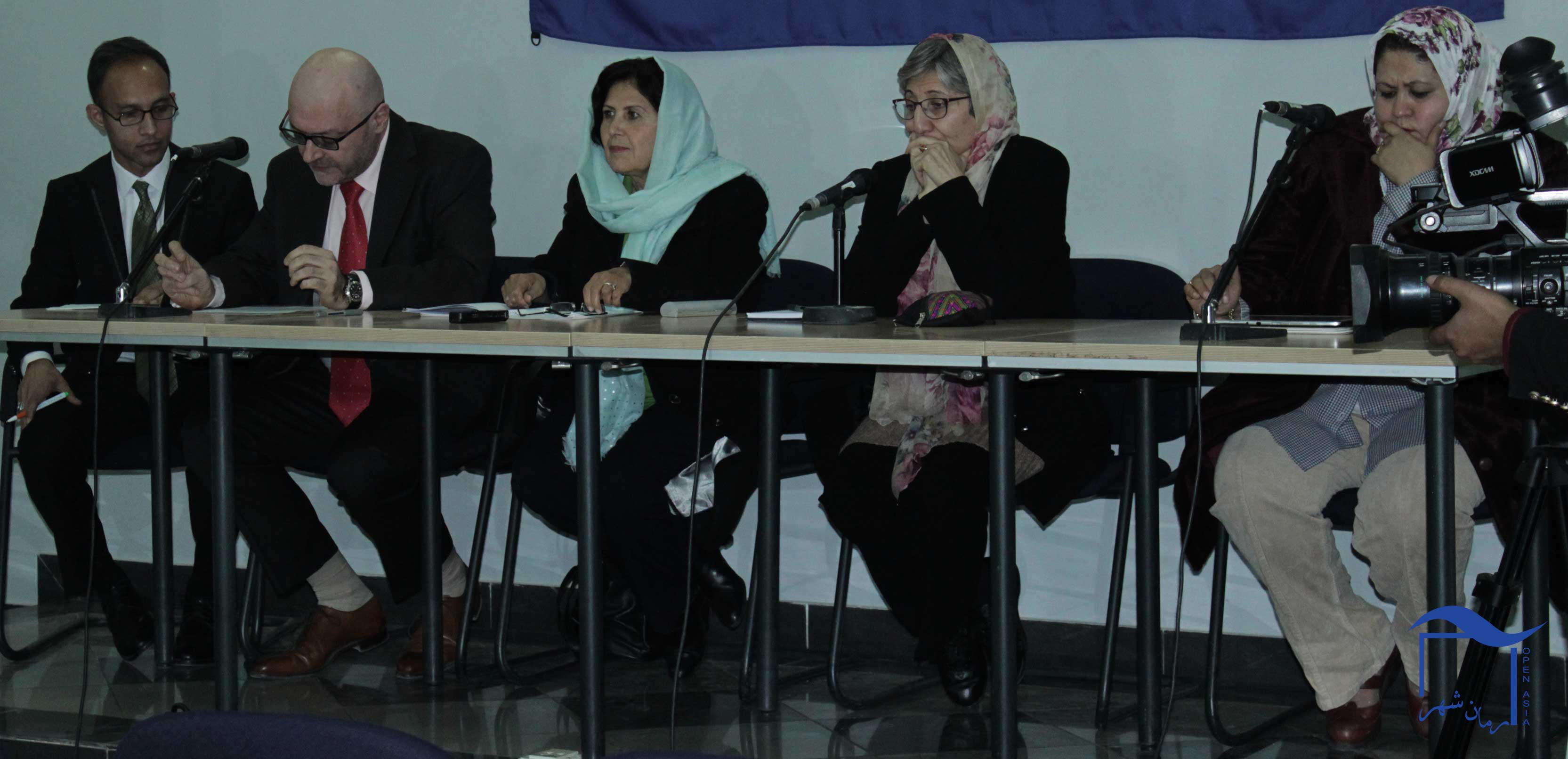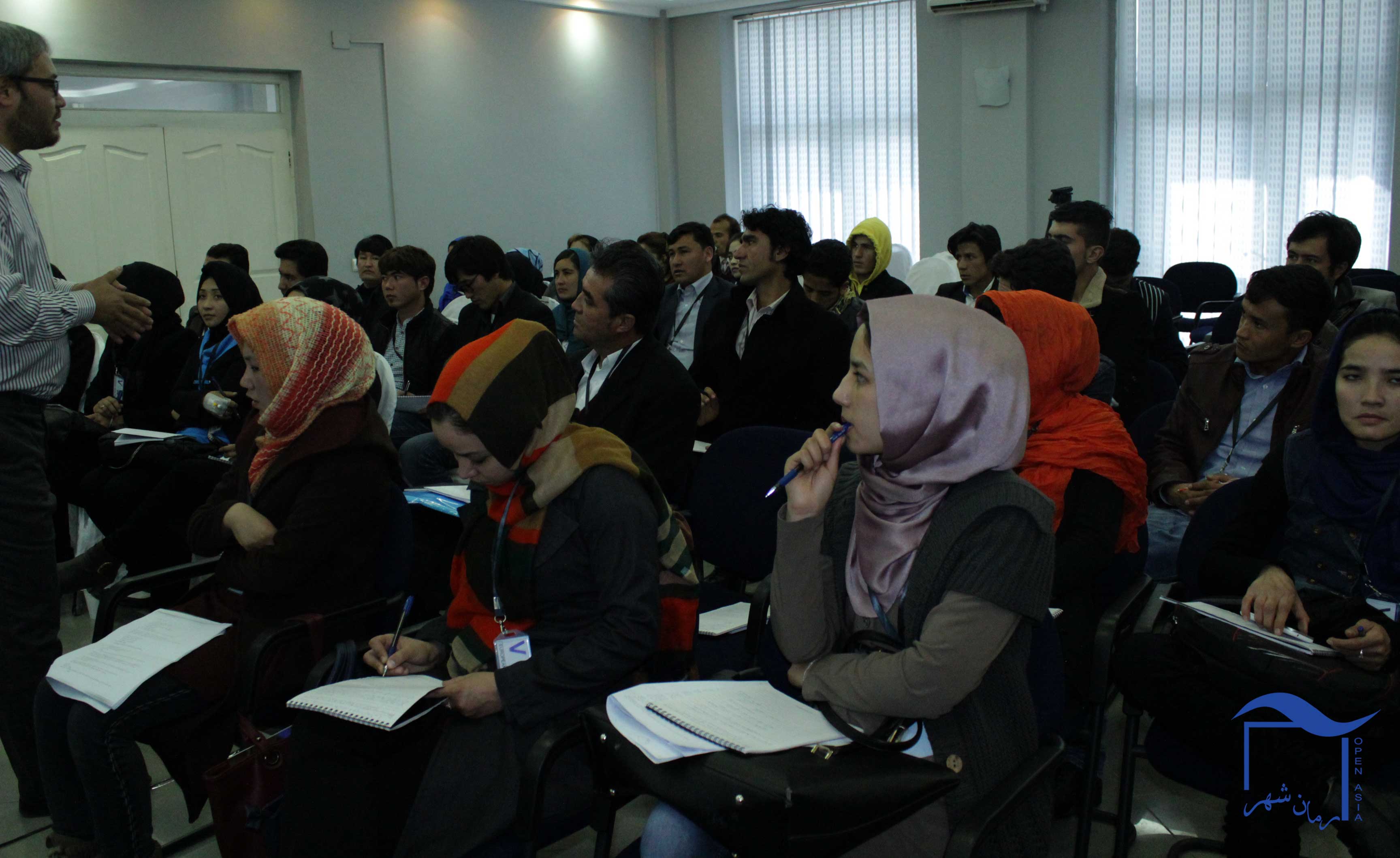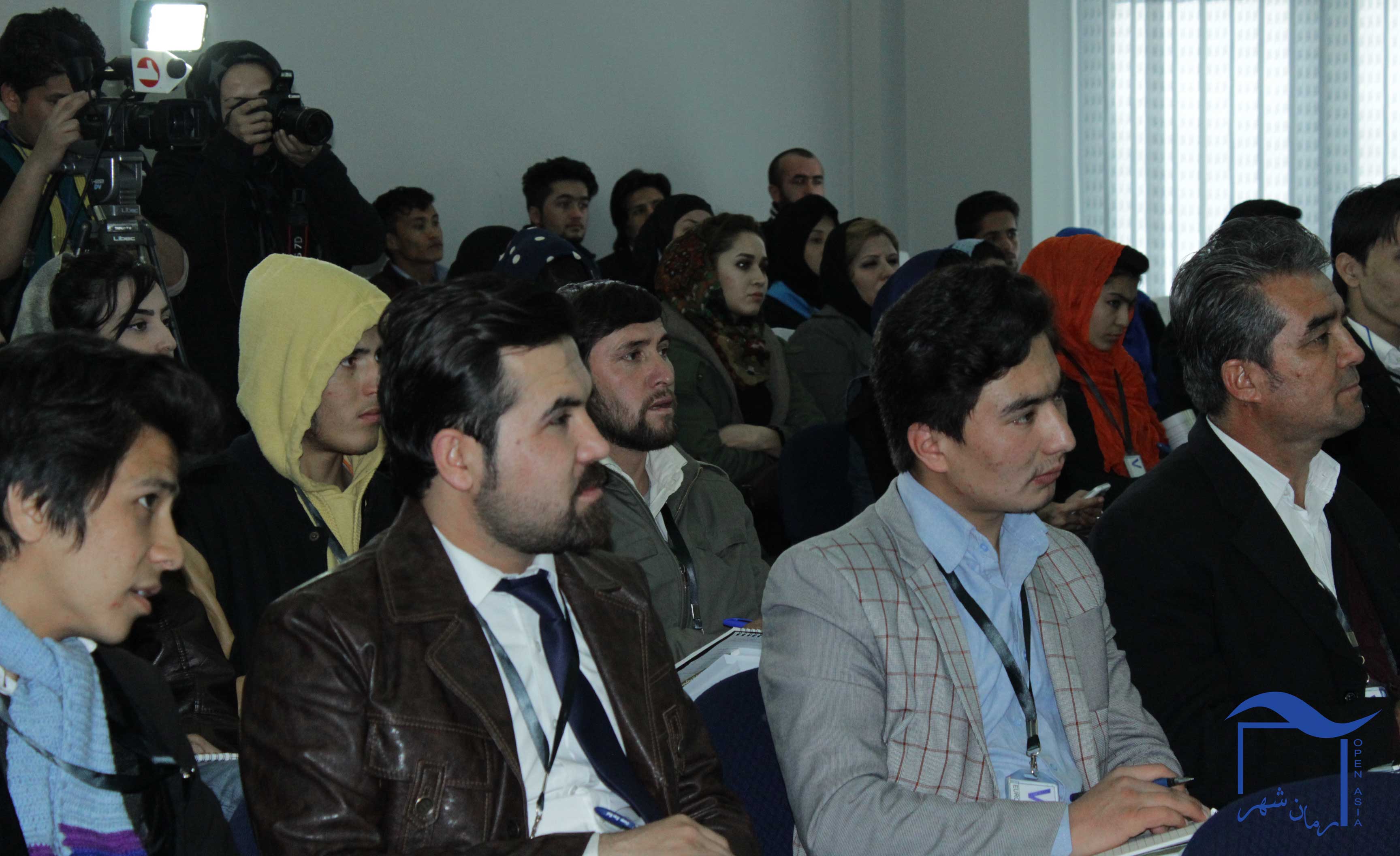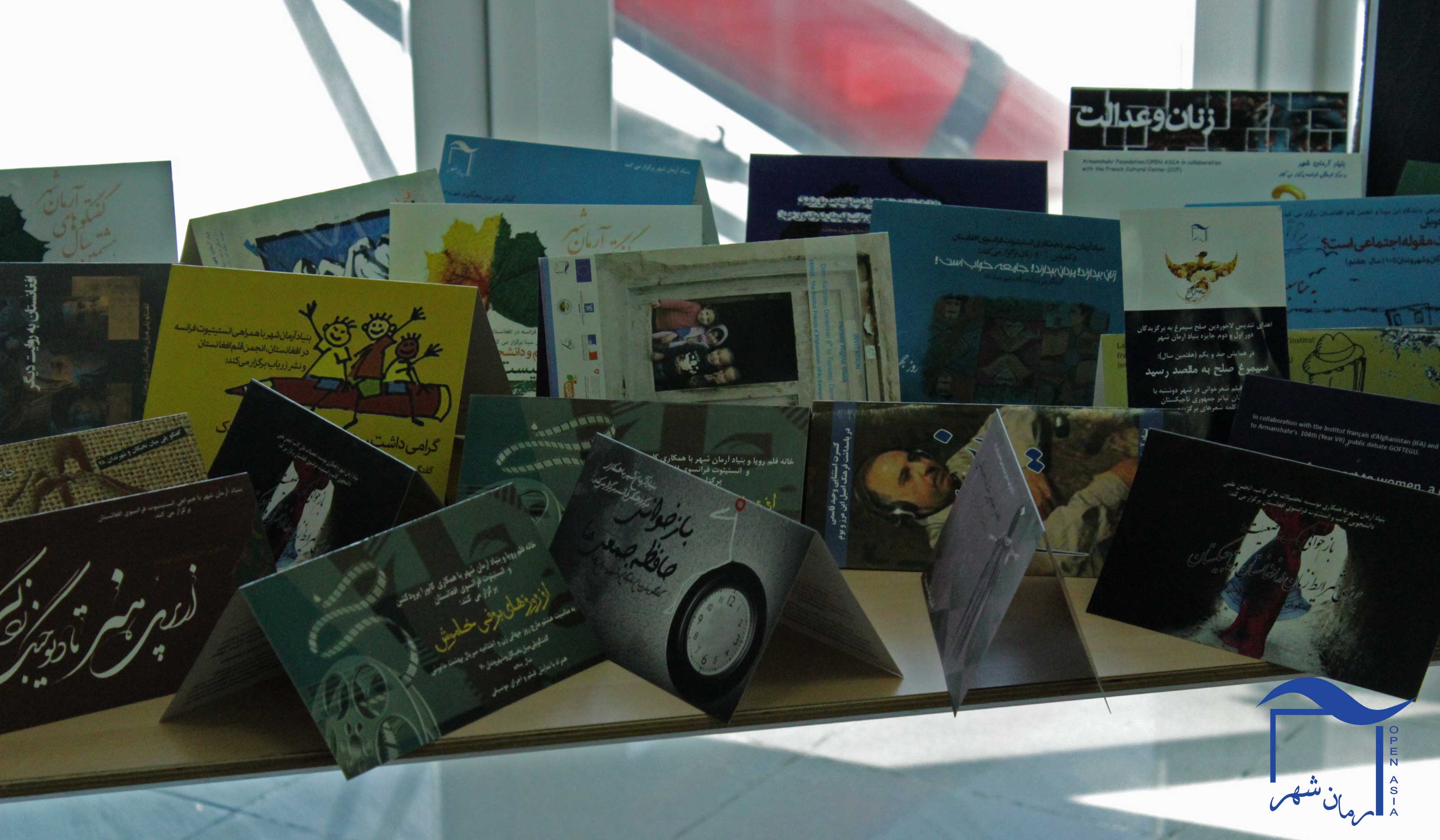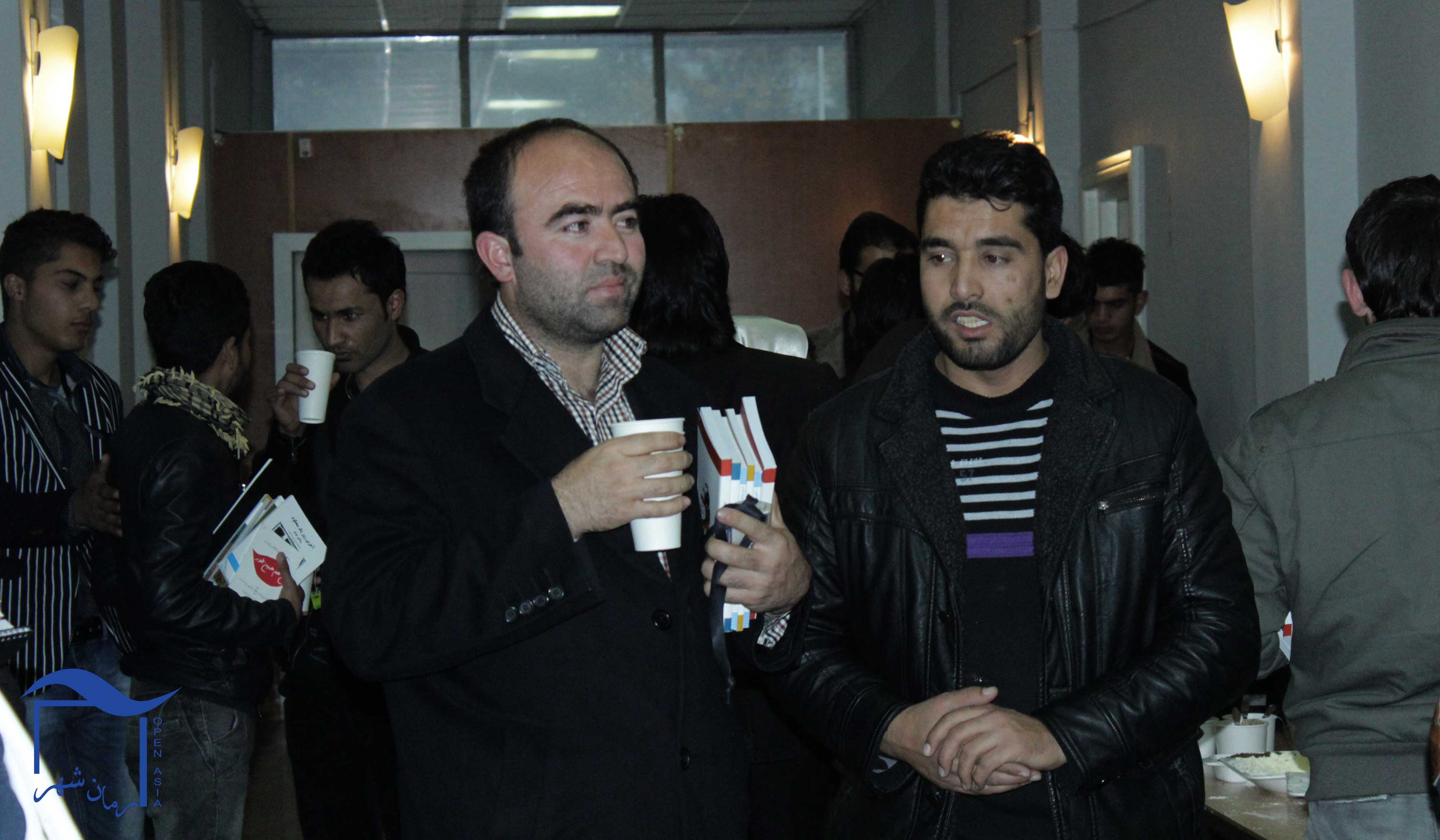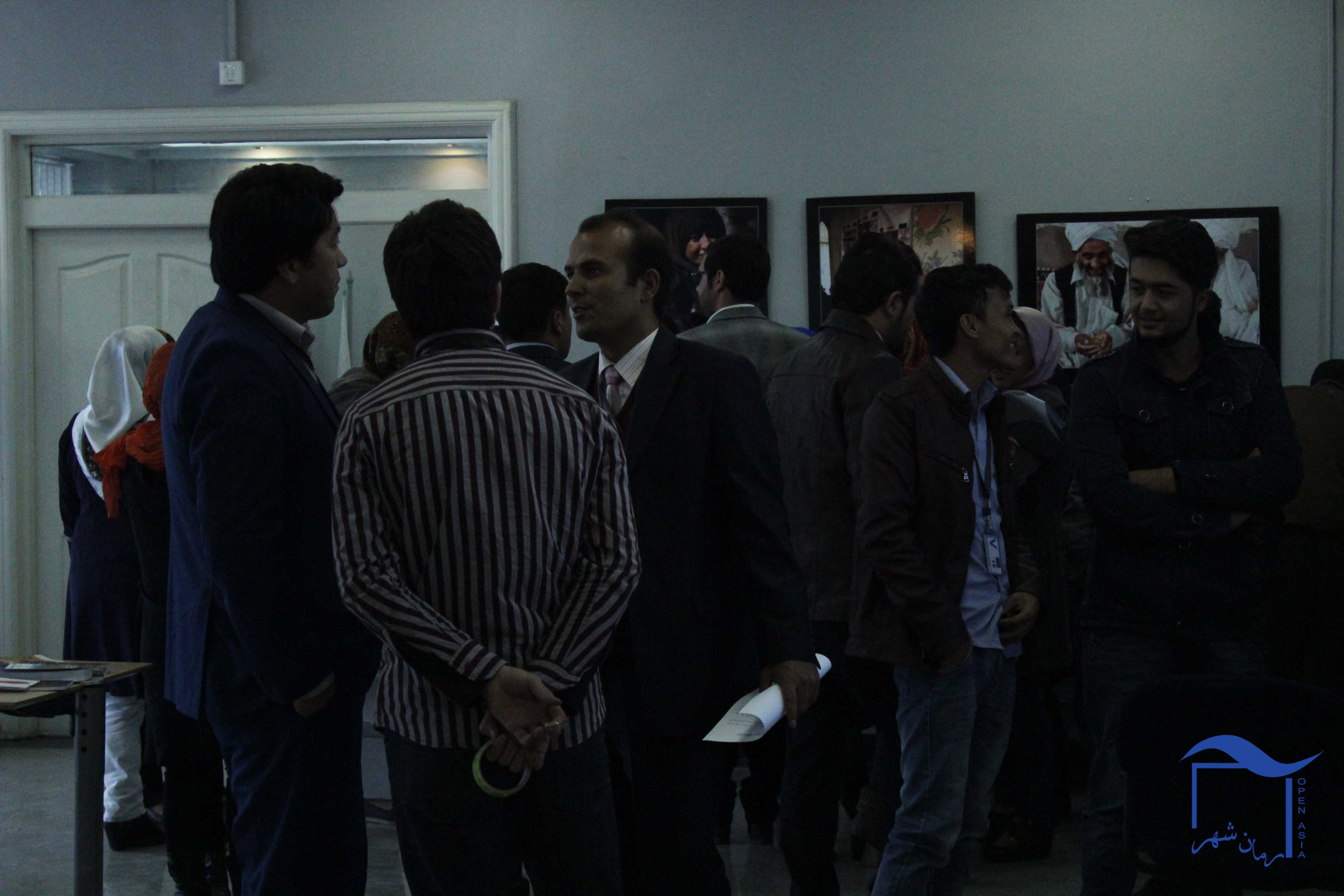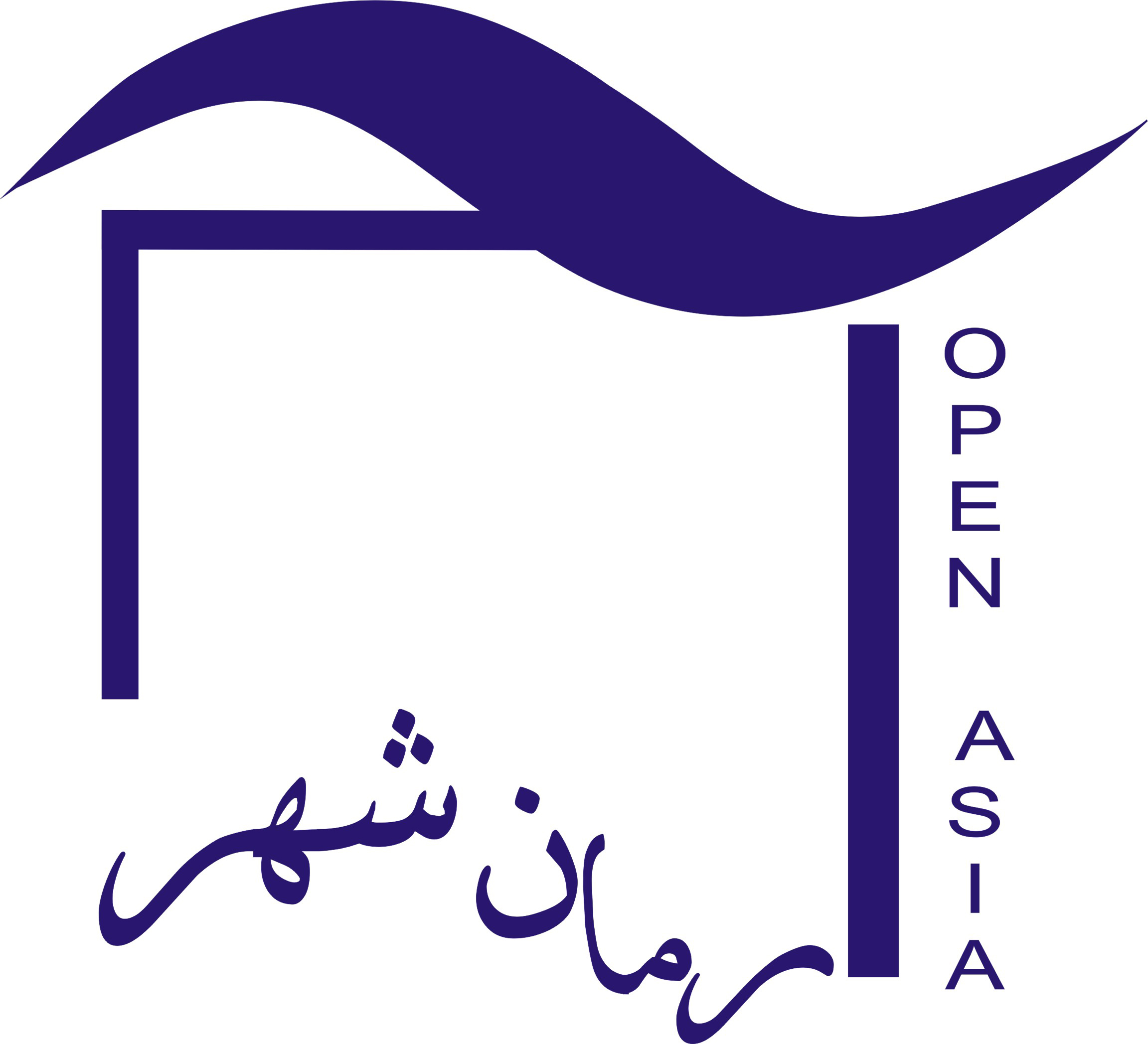

A report on the 3rd Human Rights Week
(7-10 December 2015 – Kabul)
To mark the 57th Human Rights Day
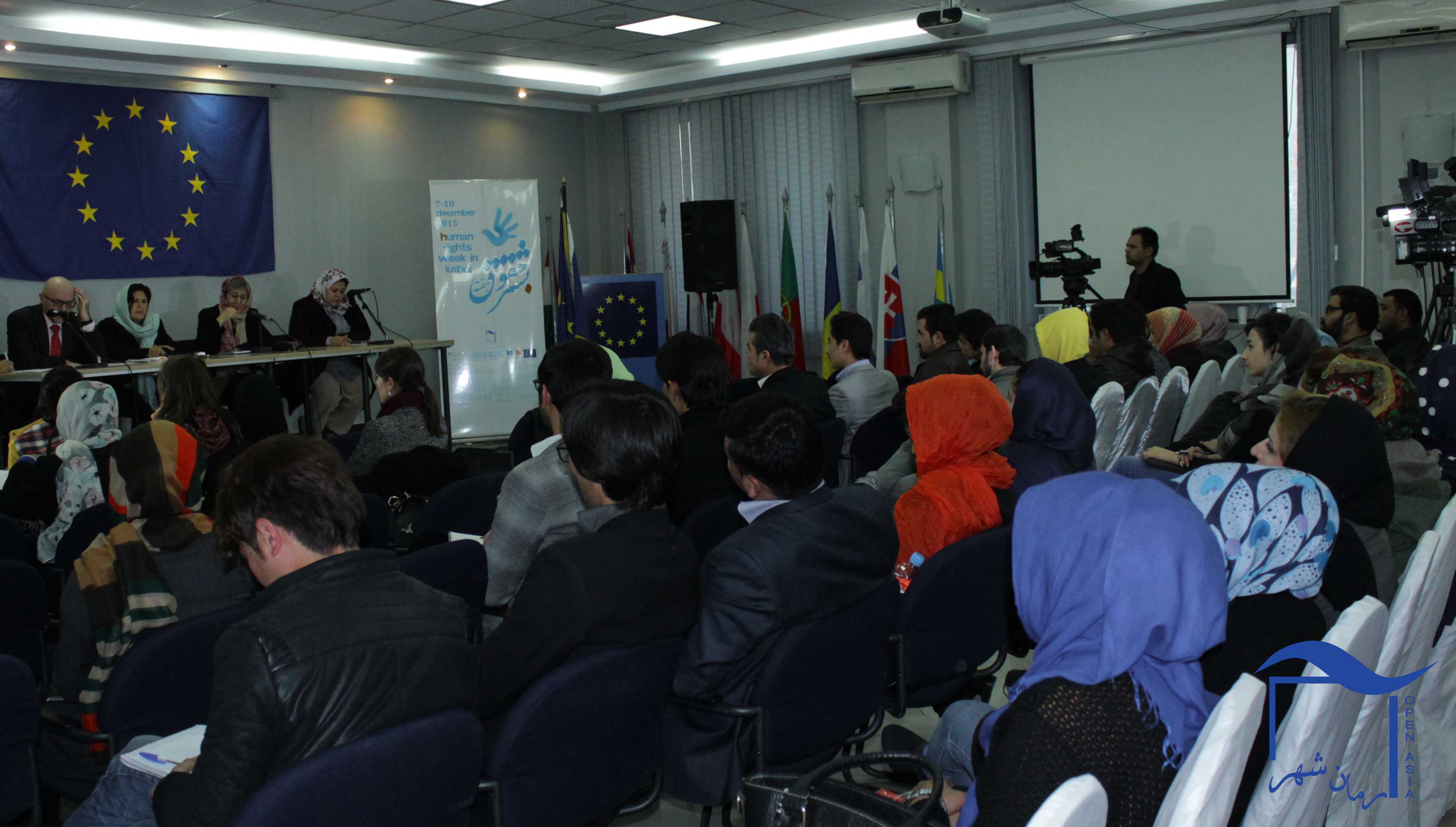
The 152nd Goftegu – Dialogue – meeting of Armanshahr Foundation/OPEN ASIA was held at the European Union Delegation premises in Kabul on 7 December 2015, in collaboration with and with the support of the EU, the French Embassy, the French Institute Afghanistan, UN Women in Afghanistan, and the Swiss Cooperation Office Afghanistan.
Dignity is having a dream!
Philipe Merlin, the French Chargé d’Affaires, opened the meeting by saying: “Let me thank Armanshahr Foundation as the organiser of this meeting. It is befitting to remember a women’s rights activist here: Ms Fatema Mernissi, the prominent Moroccan sociologist, writer and feminist, who died last week.” He summed up his address with a quotation from Ms Mernissi: “Dignity is having a dream.”
Kazemia Mohaqqeq, the meeting’s moderator, said in the opening comments: “Afghanistan is now in such a condition where one cannot offer a uniform definition. A new definition of the situation is required.”
UN conventions, declarations and resolutions are an admission of women’s oppression
Sima Samar, Chairperson of the Afghanistan Independent Human Rights Commission, was the first speaker, who said: “We have a Human Rights Day, because the UN approved an instrument in 1948, which drew a line between dignity and fear. This instrument ensured human rights and freedom. Appreciating the Human Rights Week is tantamount to defending human dignity and freedom; that we are not humiliated and insulted any more. These are rights that all humans need. When we talk about humanity, there are two sexes: men and women. Our cultural system has been based on a compulsory division of labour. When we studied in school, we had to learn embroidery, but boys learned farming. Whereas, there are women who may be great farmers, but they were deprived of that right. Violence against women in different forms is ongoing all over the world. All UN conventions, declarations and resolutions are an admission of women’s oppression.”
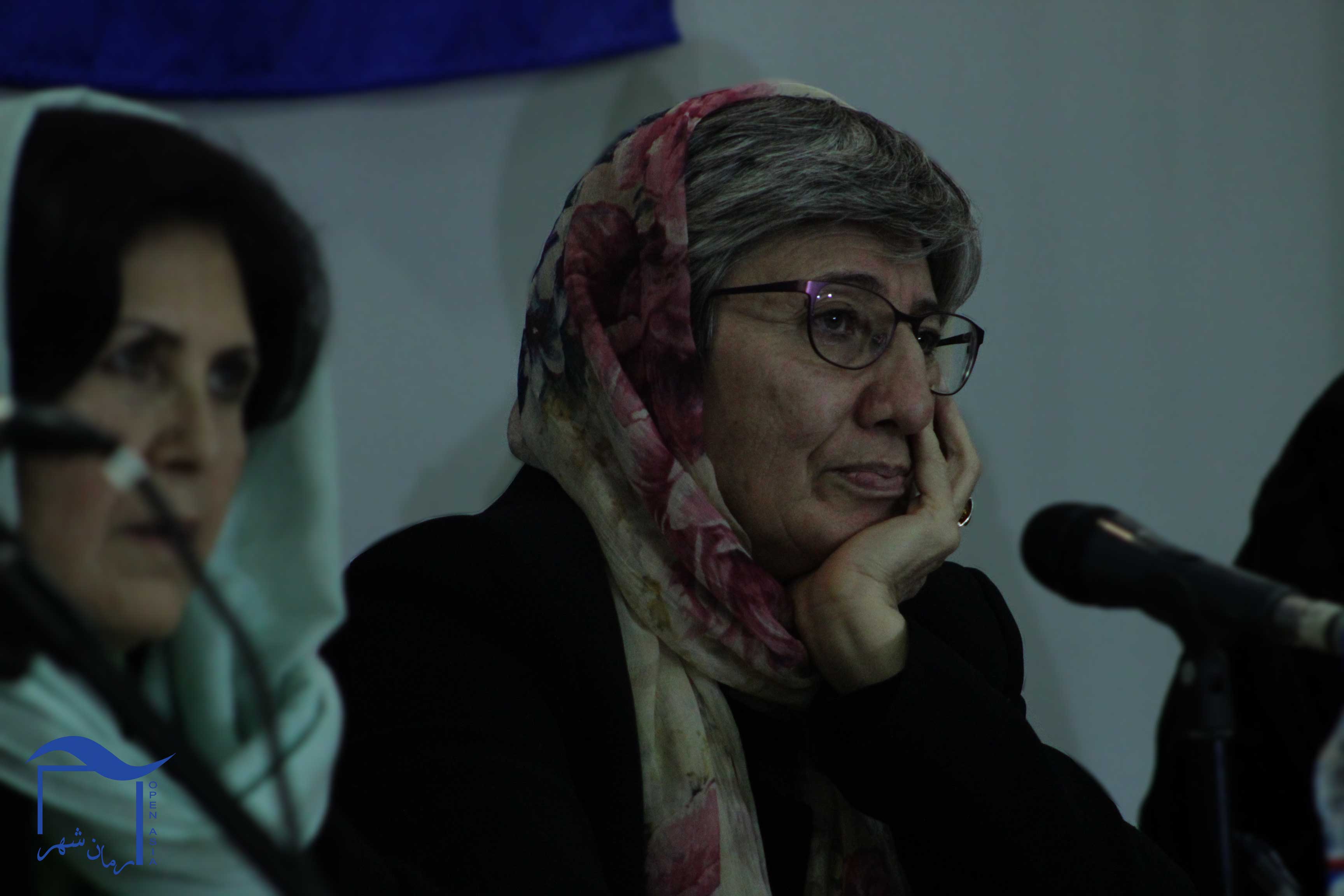
She also emphasised that 38 years of conflict in Afghanistan have but increased violence.
Certain aspects of culture prevent the implementation of laws
Dr Alema, political advisor to Ministry of Women’s Affairs, addressed the achievements of and challenges faced by women in the last one century and a half: “There are many guarantees in the laws, regulations and strategies for protecting women. However, the majority of people do not know about them, because these laws and strategies have not been implemented. The government is to blame in some instances, but in some cases, certain aspects of culture prevent the implementation of laws. Recently, the Council of Ministers approved the Regulation on Prohibition of Sexual Harassment and the Strategy for Prohibition of Violence against Women was also approved.
“We are facing such problems today, for which we do not have any solutions. The character of wars has changed since 2001. There are groups like the Taliban, Daesh (ISIS), Boko Haram, and others of this type, that sell women on the markets, but there are no national or international resolutions or instruments to prevent them. For instance, during the Kunduz war three months ago, women departed the city in very bad conditions. There was no force to protect them. Many women activists were caught up in the war. But, we did not have any options to save or protect them. The questions now are: What should we do in view of the current situation? What are our priorities? If, for example, the Constitution is due to be amended, we have to determine the red lines in advance.”
To improve the women’s conditions, she suggested the establishment of funding for “state of emergency” to be drawn upon at times of need. She also emphasised that “impunity” must be ended: “It is cause for concern that a woman like Rakhshana is stoned, but nobody is punished. This must end. There are plans to establish psychological clinics for women in all provinces. We must all endeavour to fulfil this plan. The other issue concerns protection and prevention. For instance, there was a campaign some time ago to recruit women into the National Police Force. What should we do to prevent these police officers from being subjected to violence? Women are not alone in defending women’s rights, there are also brave men who accompany women.”
Afghanistan government is committed to implement the working plan of Resolution 1325 but this commitment has not been put into practice
Sharif Sherafat, a civil rights activist and university professor, discussed the need to revisit the post-Taliban achievements and challenges in Afghanistan: “When there is a war, only human rights are violated, both of men and women. The effects are greater on women though. They suffer rape, forced prostitution, sexual enslavement and the like. Whereas such issues are either incomprehensible or occur less frequently. Such incidents are even used as a war strategy to defeat the enemy. Resolution 1325 is the most effective instrument that protects women and other instruments must be brought in line with it. This instrument was prepared as a result of the atrocities experienced in world wars and civil wars. It has two significant messages: Protection of women during conflict and protection after armed conflict. The instrument has impacted the various instruments in Afghanistan, e.g. the Constitution, National Strategy and others.”
On revisiting the conditions of women, he believed: “We now need to revisit the strategies. The achievements for empowerment of women are not few, but we need to assess and review the report sheet. I believe that the Afghanistan government is committed to implement the working plan of Resolution 1325 but this commitment has not been put into practice. Because, the Ministry of Foreign Affairs assumed the responsibility to implement it. The question is if there was no other body that could implement it. Has our external commitment not replaced our internal commitment in this case?”
To improve the women’s conditions, Sherafat suggested: “Involving women in peace-building comes after empowering women, which would increase their participation. I have frequently proposed that economic empowerment of women must receive more attention than their political empowerment. My other proposal concerns the establishing of women’s peace movements. Experience of other countries shows that women have had the most impact on establishment of peace and protecting it. A sociological approach indicates that women have less to do with violence. They are also different in affectability and performance. Therefore, they are less inclined to commit violence. In contrast, they suffer the greatest negative impacts of the conflicts. My third proposal is to promote sexual justice that should target inequalities.”
Questions from the audience
In conclusion, a number of the participants asked their questions to the speakers.
One participant asked about the conditions of women under the National Unity administration. Sima Samar replied: “Violence has not risen in comparison with the past, but there is more exposure. The frequency of violence is by far greater than those reported in the media.”
Fattaneh Gheilani, one of the participants, said: “Violence has engulfed the whole world. Afghanistan is in a complicated situation. It is true that there are good laws, but the practice is to the contrary. Women have lost their self-confidence as a result of tricks and ongoing wars. The fact that a number of women occupy top posts does not mean that they represent all women in Afghanistan. My question is: Why has the UN not heard the legitimate demand of women for peace since 1992? If this demand cannot be effected, then its gates must be shut down.”
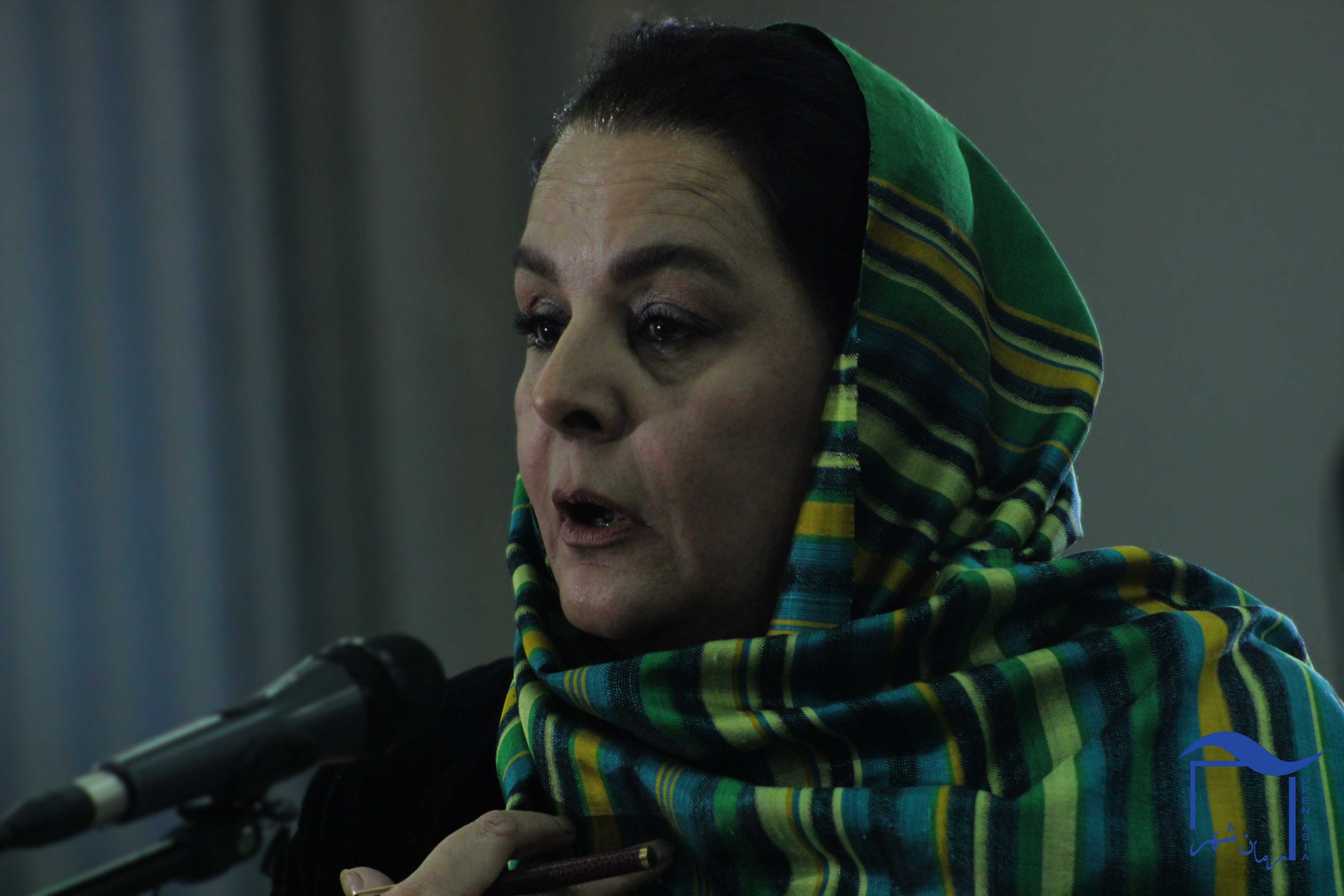
Sima Samar answered: “Unfortunately, the UN has the same role everywhere; in Iraq, Syria and Palestine, which have had by far more war than Afghanistan. However, it is not within my power to shut it down.”
Painting and Miniature Exhibition of Marzia Nazari: “Dance and Paint”
The first day of the Human Rights Week concluded with the opening of the Painting and Miniature Exhibition of Marzia Nazari: “Dance and Paint.”
Shamama Gallery collaborated with Armanshahr Foundation to organise this exhibition. Ms Nazari was born on 5 March 1986 and is a psychology graduate from Kabul University. She has been painting and making miniatures for 12 years and has had two individual exhibitions and participated in several collective exhibitions.
On holding her exhibition on the first day of the Human Rights Week, she said: “I am stating my heart-felt views in my paintings and miniatures through Armanshahr. These images show the conditions in Afghanistan: People in colour clothes, but with depressed and dark spirit. I conclude by wishing that we may never have days like those of Farkhonda and Rakhshana.”
